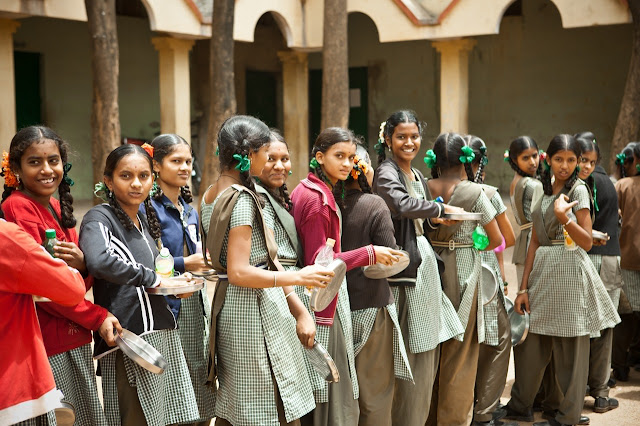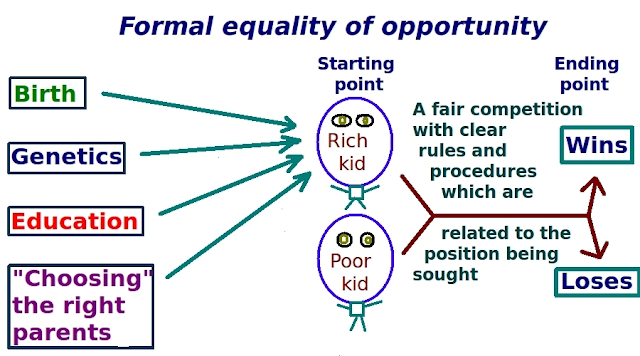 |
| STUDENTS |
Recently, RSS chief publicity leader Manmohan Vaidya has said that “the caste-based reservation should end”. Speaking at Jaipur Literature Festival, the leader said that instead of continuing with reservations infinitely, attempts should be made to make available to people equal opportunities for education and other things.
Bad impacts of banishment of caste-based reservation:
Slow development of the country. In India, communities who are economically, socially and mentally backward, find it very tough to compete in open competition. That is the reason reservation was introduced in the system. Reservation helps backward communities to get included in education and in government jobs which eventually helps our county to develop faster. The end of caste-based reservation will result in the slow growth of the country.Upliftment of dalits will become impossible.
The caste-based reservation was introduced in our system for the upliftment of backward classes in the society. These classes have always been exploited by the upper classes of the society and reservation helps them in getting their rights and an equal place in the society. If caste-based reservation ends, the upliftment of backward classes will become impossible and they will exploitation will increase.
Good impacts of banishment of caste-based reservation:
Standards of higher education will improve Many students of general caste lose their seat in higher education due to the caste-based reservation. Every candidate will get the equal opportunities to grab a seat and no deserving candidate will left out of the opportunities which many times happens.
 |
| CHART |
Government jobs will become approachable for everyone:
The caste-based reservation system gives great opportunities to backward classes in government sector but it leave people of general caste with very little opportunities. If reservation system ends, government jobs will become approachable for each class of the society.
Though the Reservation System works in favor of the backward castes of the society, at the same time, it has brewed up some controversies in the country too. It is believed that the system supersedes merit in certain circumstances, when meritorious candidates are deprived of the jobs or admissions so that candidates of backward classes can be accommodated as per the reservation system. Moreover, the system is confined to government institutions and firms, while those in the private sector are still beyond the reach of people belonging to the backward classes, either because they lack the skills needed to enter these firms or institutions or they are not financially sound enough to afford them. Some believe that the reservation system is a political tool to get hold of the backward class vote bank and it has an overall negative impact on the productive workforce of the country by ignoring the people with true potential and giving people opportunities on the basis of caste rather than merit.
Accusing his opponents of “spreading lies” against the government, Prime Minister Narendra Modi Monday called himself a “bhakt” of B R Ambedkar and asserted that the reservation policy for Dalits and tribals will not be diluted even if Ambedkar himself were to come back to life and demand its revocation.
Modi, who was delivering the Ambedkar Memorial Lecture at Vigyan Bhawan, took a veiled dig at Opposition parties and said, “Some people do not even want to see us. They get a fever when they see us. That’s why they are spreading lies.”
“When the Vajpayee government was formed, people were scared that reservation was going to be abolished. But nothing of that sort happened… This is a right that nobody can snatch,” he said. “Lies are being spread even today because some people are only engaging in politics.”
What if we had restricted reservations of constituencies just to a decade as Dr Ambedkar had envisaged?
Dalit representation in Indian politics would have been non-existent. The Dalits in most parts of the country are so scattered that they do not have a meaningful electoral strength. So, here, reservation of seats for Dalit candidates has served a purpose. Having said that, the cancellation of political reservation would have made no difference to the Dalit movement because Dalit politicians who have benefited from the reservation of constituencies have turned out to be puppets in the hands of
parties like the Congress and the BJP. These parties exploit political reservation to increase their own seat count. The welfare of Dalits has been lost in political calculations. So if political reservations end today, it may not make a difference to the larger welfare of Dalits.Advertisement opens in new window
What if there was never any reservation in services and educational institutes?
It would have brought about a disaster. Job and educational reservations were very vital in the view of Dr Ambedkar. In fact, while he advocated a 10-year period for the reservation of constituencies, he wanted reservation in services and colleges to be permanent. If those reservations were not put in place, there would have been a People’s War Group in every Indian state. The oppressed classes would have never found a channel to come into the mainstream. What would have been denied to them, they would have taken by force. In fact, I foresee the future generations taking up violence if this madness of privatisation continues. Job opportunities for Dalits are shrinking because of privatisation. So ‘what-if-there-were-no-reservations-after-independence’ is close to becoming a reality. And the way the poor Dalit youths will respond will answer the question what would have happened if there were no reservations in free India.
What if reservation was for all the poor of India instead of Dalits?
The poor of India, assuming that it has been clearly defined, would have been a very large number. The struggle of the poor Dalits, poor because of the oppression they suffered for centuries, would have been lost. A diluted reservation is as good as having no reservation. And the youth might have made this point through violence.Advertisement opens in new window
What if the creamy layer in the Dalit community was left out of reservation?
It would have been impractical and unfair. It was using the benefits of reservation that many Dalits became what you call "creamy layer". So first they are benefited and then their children are penalised? And how would you define a well-off Dalit? Only he? His immediate family? His extended family? Who? It would have been impractical to make such discriminations within the community. It would have in a way distanced the affluent from the Dalit movement.
Prakash Ambedkar, grandson of the Babasaheb, was talking to Manu Joseph.
PERCENTAGE OF RESERVATION:
In central-government funded higher education institutions, 22.5% of available seats are reserved for Scheduled Caste (SC) and Scheduled Tribe (ST) students (7.5% for STs, 15% for SCs). This reservation percentage has been raised to 49.5% by including an additional 27% reservation for OBCs.
Reservations in elected bodies:
In parliament, caste and tribe based reservations are provided to make it more representative.. Today, out of 543 seats in India's parliament, 84 (15.47%) are reserved for SC/Dalits and 47 (8.66%)for ST/Tribes. Allocation of seats for Scheduled Castes and Tribes in the Lok Sabha are made on the basis of proportion of Scheduled Castes and Tribes in the State concerned to that of the total population.
A similar percentage of exclusive seats has been provided for members of designated castes and tribes in each state legislature. Local self-governments have caste, tribe and gender based reservation system in place.
Reservations in employment:
A fixed percentage of India's government and public sector jobs are made exclusive for categories of people largely based on their caste or tribe.
The 1992 Supreme Court ruling in the Indra Sawhney case said that reservations in job promotions are "unconstitutional" but allowed its continuation for five years. In 1995, the 77th amendment to the Constitution was made to amend Article 16 before the five-year period expired to continue with reservations for SC/STs in promotions. It was further modified through the 85th amendment to give the benefit of consequential seniority to SC/ST candidates promoted by reservation.
The 81st amendment was made to the Constitution to permit the government to treat the backlog of reserved vacancies as a separate and distinct group, to which the ceiling of 50 per cent did not apply. The 82nd amendment inserted a provision in Article 335 to enable states to give concessions to SC/ST candidates in promotion.
The validity of all the above four amendments was challenged in the Supreme Court through various petitions clubbed together in M. Nagaraj & Others vs. Union of India & Others, mainly on the ground that these altered the Basic Structure of the Constitution. In 2006, the Supreme Court upheld the amendments but stipulated that the concerned state will have to show, in each case, the existence of "compelling reasons" - which include "backwardness", "inadequacy of representation" and overall "administrative efficiency - before making provisions for reservation. The court further held that these provisions are merely enabling provisions. If a state government wishes to make provisions for reservation to SC/STs in promotion, the state has to collect quantifiable data showing backwardness of the class and inadequacy of representation of that class.
In 2007, the Government of Uttar Pradesh introduced reservation in job promotions. However, citing the Supreme Court decision, the policy was ruled to be unconstitutional by the Allahabad High Court in 2011. The decision was challenged in the Supreme Court, which upheld it in 2012 by rejecting the government's argument because it failed to furnish sufficient valid data to justify the move to promote employees on a caste basis.
Reservations in education:
In India most of the scholarships or student aid is available only to—SCs, STs, BCs, OBCs, women, Muslims, and other minorities. Only about 0.7% of scholarships or student aid in India is based on merit.
The University Grants Commission (UGC) provides financial assistance to universities for the establishment of Special Cells for SC/STs. The cells help universities implement the reservation policy in student admission and staff recruitment processes for teaching and non-teaching jobs. They also help the SC/ST categories integrate with the university community and help remove the difficulties SC/ST individuals may have experienced.
New rules implementation of UPA Government do not provide scholarship scheme and reservation quota of students and employees of colleges under central University and State University approved by the UGC.

No comments:
Post a Comment